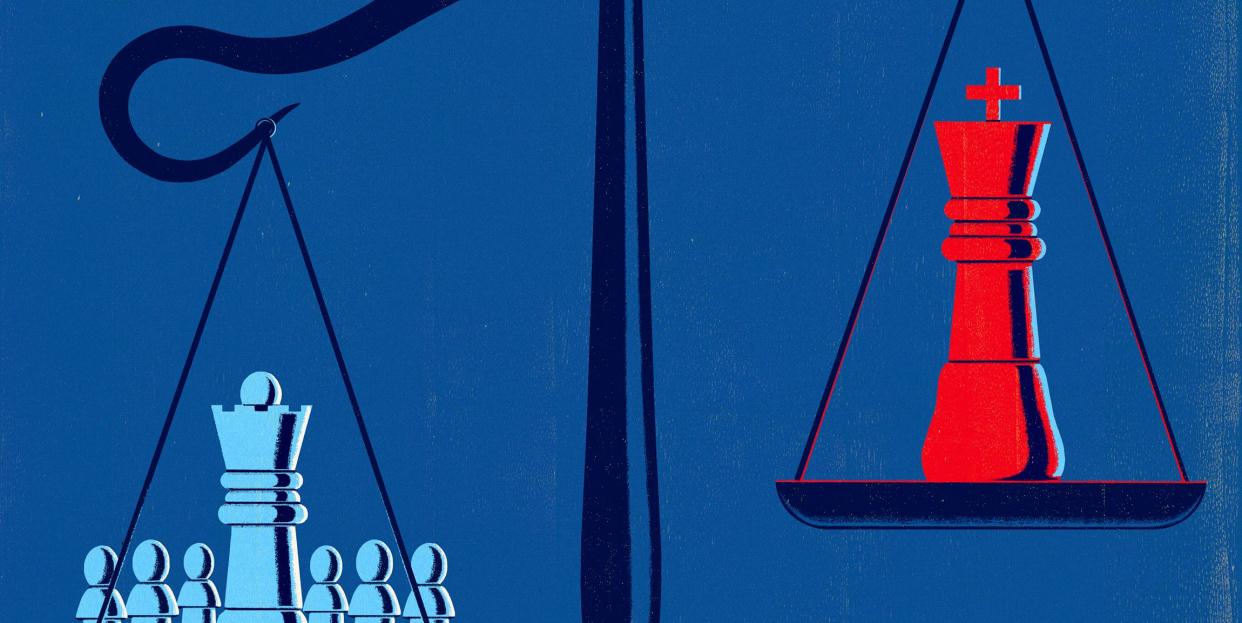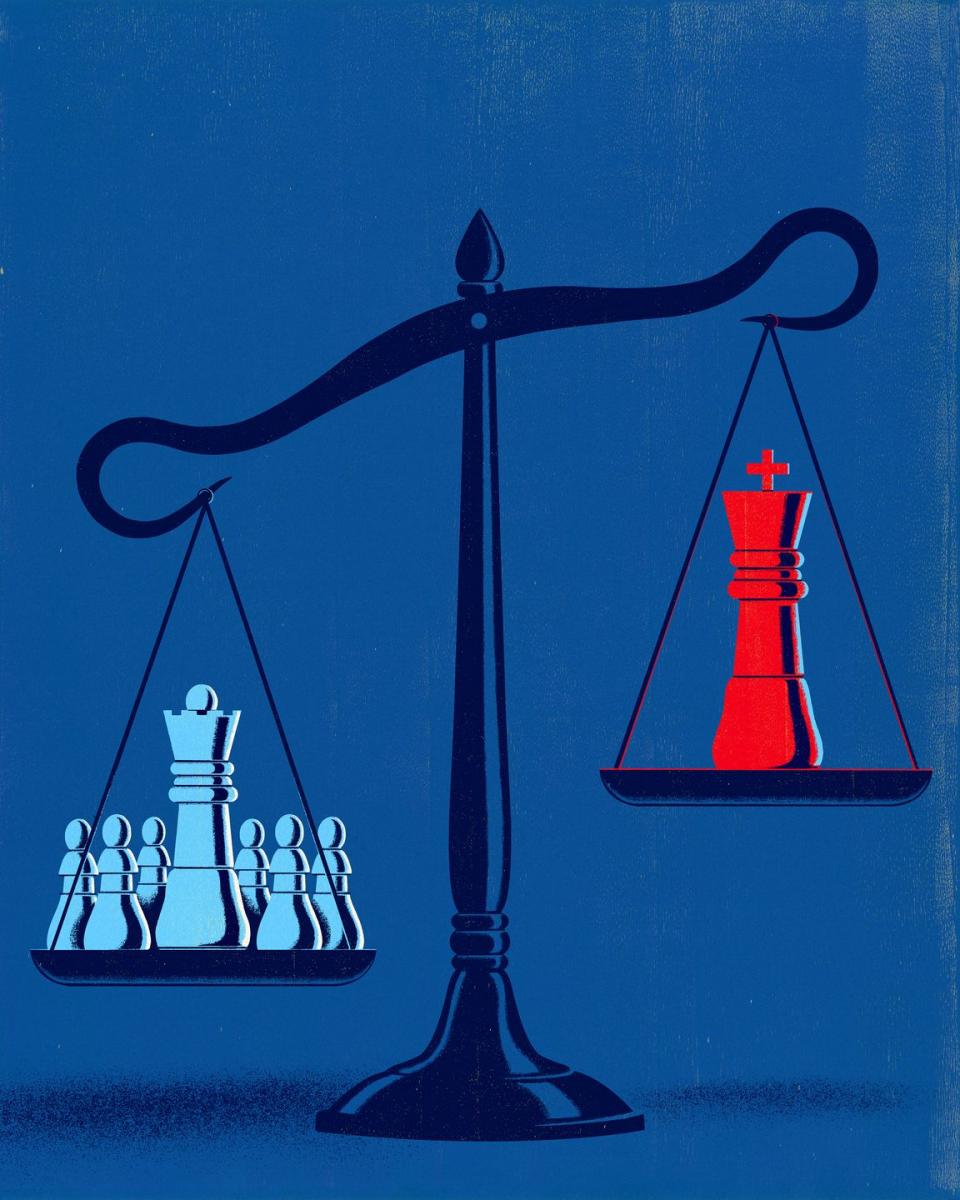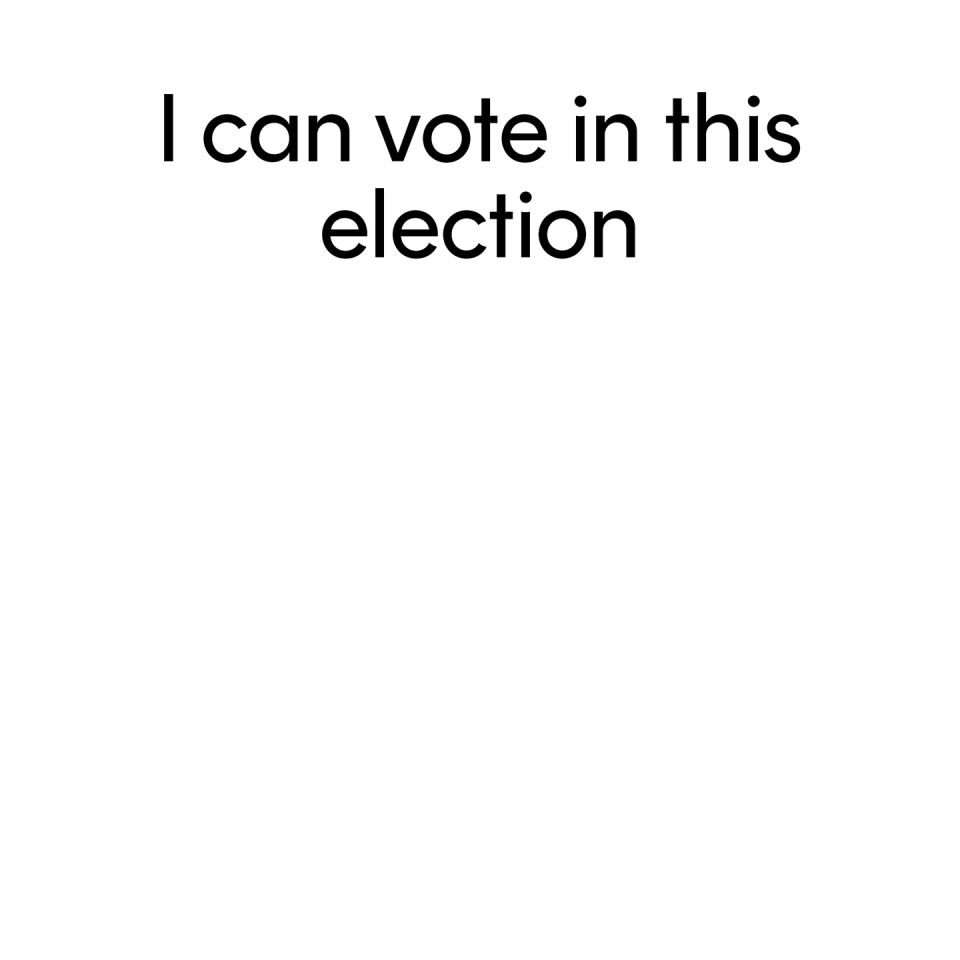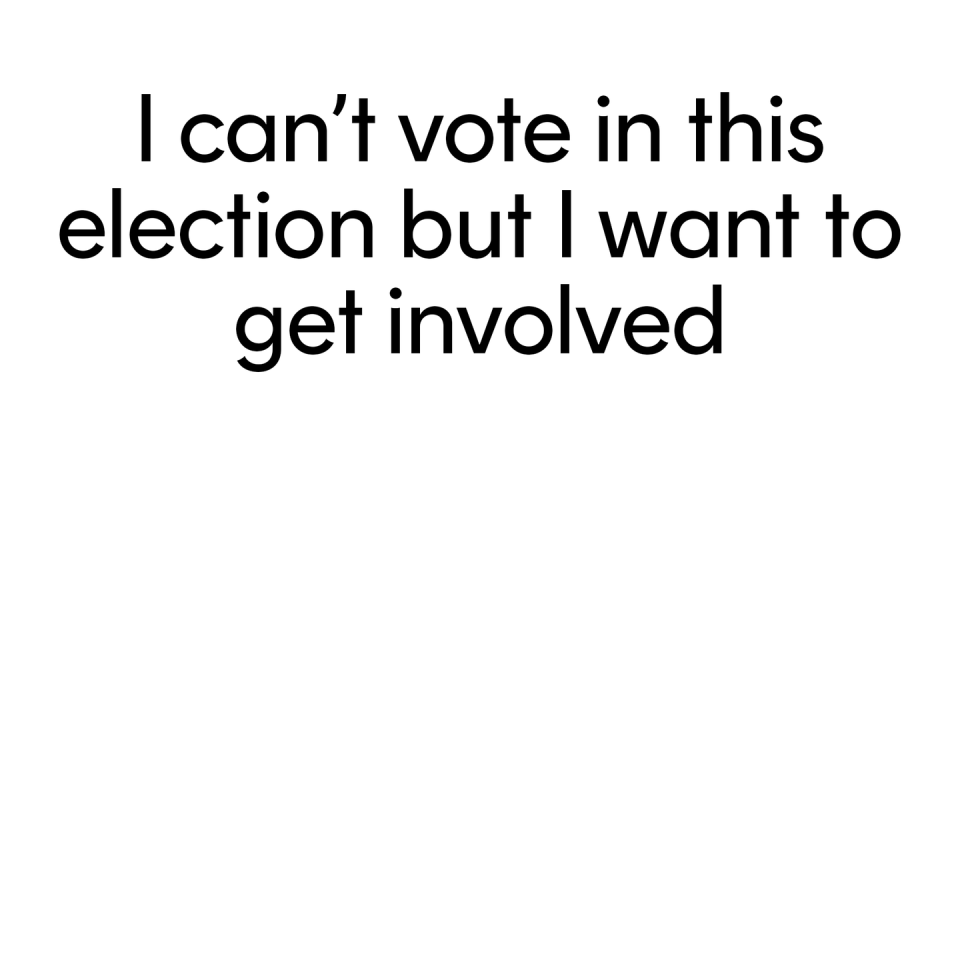You Need to Pay Attention to the Ohio Supreme Court Justice Race if Abortion Rights Are Important to You


When I moved to Chicago for college, I was excited to share that I came from Ohio. I mean, we had LeBron James, Machine Gun Kelly (pre–Megan Fox), and…okay, so, like, we really just had LeBron. But I was proud. Fast-forward a few years, and I feel the need to preface any mention of my being from Ohio that I am, in fact, liberal and pro-choice.
Ohio has always been a purple state, with the big cities (hiii, Cleveland, Columbus, and Cincinnati, ILY) consistently showing up to vote for progressive candidates while rural areas remain staunchly conservative. Over the past decade, we’ve seen efforts to pass approximately a bajillion abortion bans in Ohio, including “heartbeat bills,” but it wasn’t until the Supreme Court overturned Roe in June that the bill Governor Mike DeWine had signed in 2019 officially went into effect. Overnight, he effectively banned all abortions in the state.
Thankfully, Ohio does have one ~saving grace~ to keep a check on all this madness: its judiciary. Its courts have repeatedly challenged 6-week bans, including putting a temporary halt on DeWine’s latest attempt just a few weeks ago. We know, we know, the Supreme Court is part of the reason we’re even in this mess, but the state’s Supreme Court is a bit different: Ohio has seven justices (not nine), with term limits of six years and an age limit of 70 (!!). As of 2021, justices can have party affiliations listed on the ballot and even make public political statements—more on that in just a bit!
Perhaps most importantly, Ohio citizens can actually vote for every single one of these justices. They’re elected “by large,” meaning voters don’t just choose one person representing their circuit or region—everybody gets to choose them all.
“In recent weeks, we’ve been fortunate enough to have Ohio’s statewide ban on abortion temporarily blocked,” notes Iris E. Harvey, president and CEO of Planned Parenthood Advocates of Ohio. “However, a long-term solution is needed, and that begins with electing leaders that our patients and supporters can count on. It is imperative that we elect justices to the court who will protect a person’s individual right to choose what is best for them.”
Below, get to know the three justice candidates who are vocally pro-choice: Judge Jennifer Brunner, who was elected to the court just last year but is now running for chief justice, and Judge Marilyn Zayas and Judge Terri Jamison, who are running as first-time justices. If they win, Zayas would be the first Latina to ever serve on the high court, and Jamison would be the third Black woman in Ohio state Supreme Court history. The Democrats will gain control of the court if either Zayas or Jamison wins, which will come in handy if (or really, when) Governor DeWine and the Republican-controlled state legislature try to push more abortion restrictions through.


What first made you interested in politics?
I was a sociology-gerontology major in college at Miami University in Oxford, Ohio. I later realized that I chose that major, especially gerontology (the study of aging), because I cared about the rights of people who could not easily fight for themselves. Going to law school helped me realize—especially when I undertook comparative law—my priorities and purpose more fully: I wanted to protect people’s human rights.
What’s a moment from your career thus far that you’re really proud of?
In 2008, I was awarded the bipartisan John F. Kennedy Profile in Courage Award for protecting Ohioans’ right to vote. Caroline Kennedy described my work while serving as Ohio’s first female secretary of state as the “dauntless commitment to the enfranchisement of every Ohio voter.”
What experiences in your life have shaped your view on reproductive justice?
I remember sitting next to a girl in middle school who became pregnant. After several months, we never saw her again. I have wondered throughout my life what happened to her. So often, a girl or a woman is blamed for an unexpected pregnancy and, in this case, hidden from sight just because she was pregnant. When parents’ daughters and sons become teenage parents, I’ve observed parents’ tremendous angst about the effects of that responsibility and how it would diminish the options for their children as young parents and even affect the lives of the future children. American society is not yet to the place where women with children are fully supported with affordable, quality daycare, with paid leave at all levels of the workforce, and with realistic family leave policies. Unwanted and problematic pregnancies have far-reaching consequences for the lives of the women and men who experience them and for their families and future children.
What connection, if any, does abortion access have to broader freedoms in the U.S.?
The United Nations Universal Declaration of Human Rights is a set of rights to which all individuals are entitled. It was drafted and unanimously adopted in 1948 by the United Nations General Assembly; this milestone document set out for the first time fundamental human rights to be universally protected.
Article 12 states, “No one shall be subjected to arbitrary interference with his privacy.…Everyone has the right to the protection of the law against such interference.” Article 25 sets out a right to medical care and states that motherhood and childhood are entitled to special care and assistance. The United States is a party to this document and by treaty with the rest of the world has committed to guarantee these rights to all Americans.
People’s rights under the law are not political or subject to the whim of whichever political party is in power. Judges must remain impartial and stay grounded in the law to protect all of our rights. The judiciary must never become a political tool, forcing ideology in the name of the law on any person.
What first made you interested in politics?
My passion for law began as a teenager when I was accompanying my mom to court and served as her ad hoc interpreter as she fought for custody over my youngest brother. At that time, my mom, who was born in Puerto Rico, had a seventh grade education and limited English language skills and worked in a sewing factory. She had very few resources for legal representation. Through this experience, I realized the profound impact courts have on people’s lives.
What’s a moment from your career thus far that you’re really proud of?
When I decided to run for the Ohio Court of Appeals in 2016, I had no background or experience in politics. I ran because I believed that it is important to have judges who understand that their decisions affect people of all walks of life and who can apply the law equally to all regardless of circumstances or politics. So I set out to meet people where they are, including going to areas where I was told that I would not be well received. I approached everyone with dignity and respect, and most gave me an opportunity to share who I was. When I was elected, I was proud that the voters entrusted me with this seat, despite my unconventional background.
It was important that I become an excellent judge to pave the way for others from unconventional backgrounds and circumstances to have an opportunity to also serve as judges. Growing up in a middle-class neighborhood that was devastated by drugs and crime and in difficult family circumstances, I was expected to become a statistic.
I am personally proud of the judicial reputation that I have built. My life experiences compel me to be impartial and independent in every case that comes before me. My judicial record shows that I faithfully apply the law fairly and impartially, understanding each decision affects people of all walks of life. I was reelected by over 60 percent of the voters, an unprecedented amount.
What experiences in your life have shaped your view on reproductive justice?
I prefer not to answer this question. As a court of appeals judge and a candidate for justice of the Ohio Supreme Court, I am governed by the Ohio Code of Judicial Conduct. I should not express my agreement or disagreement with legal issues or pending legislation to protect the independence, impartiality, and integrity of the court.
What connection, if any, does abortion access have to broader freedoms in the U.S.?
The recent Supreme Court decision in Dobbs has opened up the possibility that individual rights and civil liberties that were previously protected under the Constitution of the United States may, in the future, be governed by the state constitutions.
What first made you interested in politics?
I’ve worked in the coal mines of West Virginia, put myself through law school, and run my own small business in Ohio. I wanted to make the courts work for everyone, so I ran for judge. I believe our courts should be a place that provides equal justice under the law, a place where the law—not politics, special interests, or the wealthy—informs decisions. Ohioans deserve a justice who believes strongly in protecting democracy, preserving independence, and ensuring that justice is accessible to all.
What’s a moment from your career thus far that you’re really proud of?
I’m most proud of the Compass Program, collaborating with Child Support Enforcement to give unemployed and underemployed obligors [Editor’s note: That’s legalese for the legally responsible party, so here it probably means a parent or guardian] the opportunity to complete their high school diploma or GED, become certified in job skills, regain driving privileges, and ultimately become employed.
Secondly, I was the juvenile court judge selected to discuss school discipline disparities for Black girls in Pushout: The Criminalization of Black Girls in Schools, based on the book by Dr. Monique Morris. She interviewed me about my personal experience in school. This documentary highlights the traumatic experience of young girls who are adultified, mentally, physically, and emotionally subjected to suspension and expulsion rates much higher than other ethnicities.
What experiences in your life have shaped your view on reproductive justice?
Judges must set their personal experiences aside and be guided by the law and their judicial philosophy. Mine is closely aligned with the late Supreme Court Justice Ruth Bader Ginsburg. I also believe that United States Supreme Court Chief Justice John Roberts was correct when he said, “Judges are like umpires. Umpires don’t make the rules. They apply them.” When there are no rules that fit the facts, I believe a judge is empowered to interpret the law and render decisions that answer questions of great public interest.
What connection, if any, does abortion access have to broader freedoms in the U.S.?
I think cases related to abortion access and other personal freedoms guaranteed by the U.S. and Ohio Constitutions shine a bright spotlight on the fact that rulings made by the Supreme Court impact our lives each and every day.



Icon illustrations by John Francis.
You Might Also Like
